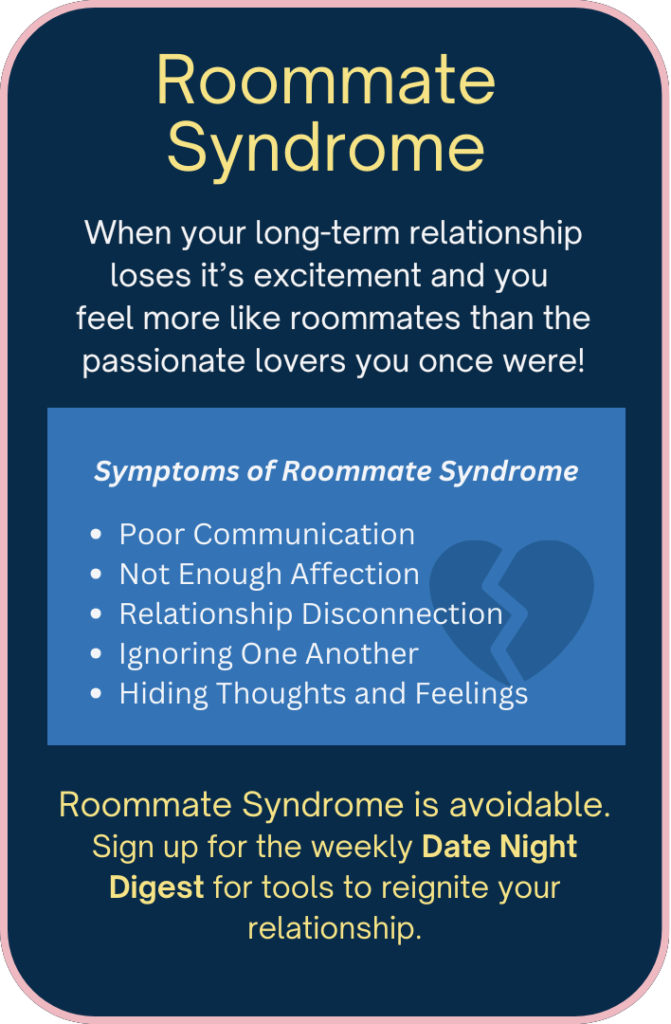
Want to rekindle the love in your marriage? One of the fastest ways to change the course is to practice gratitude and appreciation. The practice curbs frustration and irritability towards your spouse. This leads to more goodwill which makes it easier to solve problems. So, good things all around.
I describe how to practice gratitude and appreciation in depth in Part 1 of this series. If you missed it, you can read it here The Most Powerful (but overlooked) Tool Couples Can Use Rekindle Their Love Part 1
There are four objections that I often hear, when I discuss this.
1️⃣ “I can’t find that many things to appreciate. Our relationship isn’t that good.”
2️⃣ “It’s boring to share an appreciation everyday. I say the same thing over and over again.”
3️⃣ “I grew up in a family where everyone did their job. No one needed this kind of acknowledgement or propping up. I don’t need it to do my job so why I should have to give it.”
4️⃣ “If I’m telling my partner that they are doing a good job, they will think they don’t need to change anything.“
Appreciations and gratitude are more powerful than you think. So, here are the reasons why these objections shouldn’t stand in your way.

First of all, there are many good things in your relationship. In the beginning of the relationship, it was easy to see the good parts. When the newness of the relationship wears off, the problems become more clear. In fact, most people focus only on the problems. The good details fade into the background. They see the good things as a given. For instance, people say, “Sure, that’s a good thing but…” It’s like they are saying the good stuff doesn’t matter because there are problems.
When asked about the details, most people can identify a list of things their partner does well. For most couples, 75-90% of their relationship works well. But they focus on the 10-25% that causes problems. When you acknowledge the good things about the relationship, it doesn’t mean the problems go away. Instead, you are seeing a more accurate picture of the relationship.
Secondly, it’s true. If you share the same appreciation everyday, that is boring. It also has little meaning to the person hearing it. If you say, “Thank you for cleaning the house,” every day, or even once a week, it won’t improve the relationship much. Rote actions rarely do.
Appreciations improve your relationship when you notice the details. If you say, “Thank you for cleaning the house,” you don’t even have to look around to see that it was done. You can only give a good appreciation when you actually noticed (and cared) that something happened.
To improve your relationship by using appreciation, you need to drill down into the details. For example:
- “I noticed you cleaned the floors. Thank you for making sure that we have clean floors to walk on.”
- “That cabinet looks organized. Did you have time to sort things out?”
- “Thank you for always noticing and taking care of the dusting. It makes the house look clean.”
You can find these details in every area that your partner takes care of. If you are still at a loss, think how your spouse makes your life better or go smoother.
Thirdly, all families operate on a set of rules. You and your spouse grew up in families with different rules. Living well together means that you have to adopt one set of rules or merge them. When you live with different rules, there are more opportunities for conflict.
All families have some way of conveying the message that the jobs you did were valuable. Sometimes, it’s the fact that others do their job, too. So it feels like a fair trade. Other families use non-verbal cues that say “thank you for taking care of your responsibilities.”
Your partner grew up in a family with different rules. Often completely different. Their parents may have acknowledged and appreciated their work. If you don’t do that, they may believe that you either 1) don’t see it, 2) don’t value it, or 3) believe that you deserve it. These ideas wear down the feelings of love between you. It is worth it for you to make appreciation a practice to show your partner that you value their contributions.
You will also gain something by having your partner acknowledge your contributions. It may initially feel awkward to give and receive appreciation. And you may need practice to learn to really look for the details. But you will also find that it becomes important to you. Appreciations provide clear feedback on the things that your partner values. This might help you know what is most important to your partner. And, therefore, worth your effort.
Lastly, gratitude and appreciation does not replace discussions about problems. Instead, it softens your feedback so your partner is more likely to hear what you have to say. People often change faster when they know that there is a way to get your approval. When the only feedback they receive is how they screw up, they will not be motivated to work harder by your silence. If doing it right only means that you will move onto the next problem, they won’t think it’s that important to change things.
So, focusing on the good parts of the relationship makes it more likely that your partner will work to improve the relationship. They will know that you see their whole self, not just the parts that are hard to live with.
There are other objections to using appreciation and gratitude to improve your relationship, but these are the ones I hear repeatedly. I hope you will look beyond the things that are holding you back to give gratitude a try. Of course, it won’t make the problems go away. You still need to fix those, too. Practicing gratitude and appreciation will change how you see the relationship and how your partner feels about you.
Learning how to use the good parts of the relationship to build the challenging parts is one of the steps that I use to help couples develop a close and connected relationship. This is one of many tools that I teach couples to build the closeness in their relationship in my coaching program.
Together, we:
1️⃣ Identify and clear away the things that get in the way of feeling connected and happy with one another. All couples experience some hurt, disappointment, frustration, and loneliness in their relationship. When these feelings occur too often, they block their feelings of love towards one another. We will identify the relationship difficulties that block the closeness and clear the built up resentment and bitterness from the relationship.
2️⃣ Build like and love for your partner through appreciation and gratitude so you change the culture of your relationship.
3️⃣ Develop a personalized plan to connect with one another on a daily basis that will endure the busyness of your life.
4️⃣ Support your changes over an eight-week period to implement and troubleshoot your individualized plan.
If you are ready to reclaim a deep and enduring closeness and connection with your partner for a deeply satisfying relationship, get on the waitlist for the Date Your Way Back to Desire Program.



